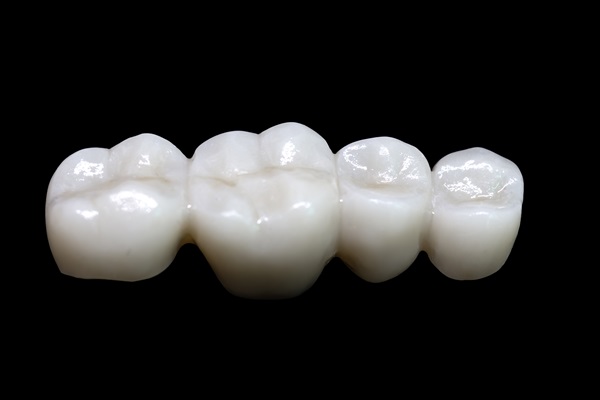5 Benefits of Dental Bridges

Dental bridges offer a reliable and effective solution for replacing missing teeth. A missing tooth, whether caused by injury, decay, or other dental issues, can impact the health and appearance of your smile. Fortunately, dental bridges can help restore your oral health. Here are five benefits of choosing dental bridges as your tooth replacement option.
1. Improved chewing and eating
Dental bridges help improve a patient's ability to comfortably chew and eat their food. Missing teeth can create challenges in effectively breaking down their food, leading to dietary limitations and digestive issues. Fortunately, dental bridges fill these gaps, allowing for a more efficient chewing process similar to natural teeth. Additionally, this restoration can contribute to better digestion and overall health, as patients can enjoy a wider range of nutrient-rich foods.
2. Restored speech and enunciation
Missing teeth can lead to changes in speech patterns and affect the pronunciation of certain words. Dental bridges help restore normal speech by filling the gaps that impact enunciation. When teeth are missing, sounds can become distorted, leading to speech difficulties. Dental bridges provide the necessary support for clear and confident speech, allowing patients to feel more comfortable in conversations and social interactions.
3. A minimally invasive tooth replacement option
Many patients choose dental bridges over alternatives like dental implants because they are a minimally invasive tooth replacement option. Dental implants often require one or more surgical procedures for placement. Additionally, if a patient lacks sufficient bone mass in their jawbone, they may need to undergo bone graft surgery. In contrast, the dentist can fit dental bridges in the patient's mouth without the need for invasive surgical procedures and an extensive healing process.
4. Prevents teeth from shifting and misalignment
When a person is missing a tooth, neighboring teeth may gradually shift to fill the open space. This shifting can lead to potential misalignment or bite issues over time. Dental bridges help maintain the natural alignment of the patient's teeth by filling these gaps, preventing unwanted shifting. Additionally, a dental bridge can help preserve the structure of the jawbone by stabilizing the surrounding teeth and preventing further bone loss in the jawbone.
5. Long-lasting and cost-effective
Dental bridges are designed to be a durable and long-lasting solution for tooth replacement. As long as bridges are properly maintained, they can last for many years, making them a cost-effective option. When compared to other tooth replacement options, dental bridges require minimal maintenance. Patients can maintain their new teeth with standard oral hygiene practices, which offers a convenient and sustainable option. They also provide the functional benefits of natural teeth without the need for complicated upkeep.
Schedule a consultation
Dental bridges offer a wide range of benefits that can improve your oral function and the appearance of your smile. Scheduling a consultation with a general dentist will allow you to explore tooth replacement options and help you determine if this restoration is the right choice for your needs. Call our office to learn more or to schedule a consultation.
Request an appointment here: https://osinadds.com or call Tamara S. Osina, D.D.S. at (281) 532-8183 for an appointment in our Richmond office.
Check out what others are saying about our dental services on Yelp: Dental Crowns and Dental Bridges in Richmond, TX.
Related Posts
If you have an extensively decayed tooth or the filling applied is too big for your tooth to support it, your dentist will probably recommend putting in a dental crown. This is a prosthesis designed to look like a natural tooth, but it is hollow inside to fit over the damaged tooth. In addition to…
A dental crown is used to restore teeth that are in bad shape. Oftentimes, they are needed for teeth that have become cracked, chipped or broken. Additionally, general dentists recommend them for teeth that have severely decayed due to an infection. While they are one of the most common dental restorations, many wonder how long…
When there are issues with the teeth, a dentist performs a variety of procedures to treat them, and one is the placement of dental crowns. A crown is a cap that looks like a tooth, and it covers an existing tooth to restore function. A crown protects a tooth and prevents further issues from occurring. A…
A dental bridge is an option for those who have lost teeth and need to fill in that space to complete their smile or bite. The procedure involves crowns being placed on supporting teeth (known as abutment teeth) that are fused with your missing tooth or teeth by what's called an implant post. The tooth-replacement…
